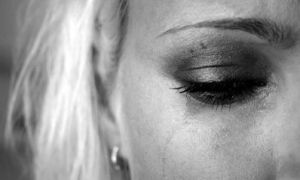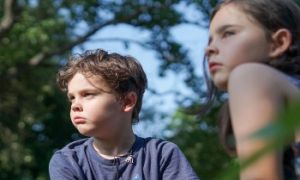

This learning experience is designed to approach the topic gently through play, storytelling, small‑world exploration, and hands‑on creativity. Rather than focusing on danger, it highlights helpers, community care, and nature’s remarkable ability to heal and regrow. The aim is to empower children with knowledge in a developmentally appropriate way, supporting emotional regulation while strengthening their connection to Country and community.
By engaging with familiar materials, calm routines, and open‑ended play, children can explore big ideas safety, responsibility, resilience, and environmental cycles in ways that feel safe, supported, and meaningful. This plan honours children’s voices, respects cultural perspectives on fire and land care, and provides educators with a thoughtful, responsive framework for guiding conversations during bushfire season.
Celebrate global traditions, spark curiosity, and build cultural awareness with this beautifully designed poster set featuring Santa figures from around the world. These posters introduce children to the diverse ways different cultures celebrate the festive season through clothing, colours, names, and unique customs.
Bushfires are a natural part of the Australian landscape, but for young children they can also be confusing, worrying, or emotionally charged—especially when smoke, sirens, or community conversations become part of their daily experience. In early childhood settings, educators play a vital role in helping children make sense of what they see and hear in a way that is safe, honest, and developmentally appropriate.
Talking about bushfires with young children is not about giving detailed information or exposing them to frightening images. Instead, it is about offering calm explanations, reassuring routines, and opportunities for children to express their thoughts through play, art, and conversation. When approached thoughtfully, these discussions can strengthen children’s sense of safety, build resilience, and deepen their understanding of nature, community helpers, and environmental regrowth.
Pattern blocks are a classic early childhood resource, and the Christmas Pattern Block Mats add a joyful seasonal twist that children absolutely love. These printables invite children to create festive images using standard pattern blocks, supporting spatial reasoning, problem‑solving, and shape recognition in a hands‑on, engaging way.
Whether you’re planning Christmas activities, setting up a math provocation, or looking for quiet table tasks during the festive season, these mats are a perfect addition to your program.
Support toddler identity development through choices, routines, relationships, and play. Explore practical examples that build autonomy, belonging, and emotional confidence.
Toddlers develop a strong sense of identity through everyday choices, warm relationships, predictable routines, and meaningful play. When educators intentionally design experiences that honour children’s autonomy, culture, emotions, and social connections, toddlers begin to see themselves as capable, valued, and connected members of their community.
These experiences don’t need to be elaborate. In fact, identity is built most powerfully through repetition, belonging, and being truly seen.
The 10 Free Santa Beard Cutting printables are a simple yet powerful activity designed to help children practice their cutting skills. By trimming Santa’s beard along different types of lines, children engage in a playful, festive task that builds essential developmental skills.
Morning group time sets the tone for the day in early childhood settings. For children aged 3–5, this is a golden opportunity to build belonging, strengthen language, nurture rhythm, and ease transitions into play and learning. A well‑designed group time moves calmly from centering rituals into energising activities, balancing structure with child‑led moments. Below are engaging strategies and examples that educators can adapt to their own classrooms, ensuring mornings feel joyful, connected, and purposeful.
In early childhood settings, emotional literacy is foundational to well-being, learning, and relationships. The free printable Feeling Check-In posters featuring clear visuals, child-friendly language, and actionable strategies offer educators a powerful way to support children in identifying, expressing, and managing their emotions. Whether used during transitions, check-ins, or moments of dysregulation, these posters help embed emotional intelligence into daily practice.
Remembrance Day, observed on 11 November, honours those who served and sacrificed in war and peacekeeping efforts. While the concept of war may be too complex for toddlers and preschoolers, educators and families can introduce the day through gentle, symbolic, and emotionally resonant experiences.
Shapes are everywhere, in the food we eat, the toys we play with, and the stories we tell. For young children, learning shapes isn’t just about geometry; it’s about noticing patterns, building vocabulary, and connecting with the world around them. These simple, rhythmic rhymes make shape learning fun, memorable, and emotionally engaging.
 Open ended questions cannot be responded to with one word answers such as yes or no. These types of questions enables a child to provide… Read More
Open ended questions cannot be responded to with one word answers such as yes or no. These types of questions enables a child to provide… Read More
 During your child’s preschool years, an important milestone begins to emerge. This is the development of pre-writing skills. Pre-writing skills are used to encourage, develop… Read More
During your child’s preschool years, an important milestone begins to emerge. This is the development of pre-writing skills. Pre-writing skills are used to encourage, develop… Read More
 Open ended materials enables children to play freely. They are objects that have no rules to follow, use or function. Raw materials that can be… Read More
Open ended materials enables children to play freely. They are objects that have no rules to follow, use or function. Raw materials that can be… Read More
 An Acknowledgment of the Country is a way of showing respect for the Traditional Owners and can be given by both non-Indigenous people and Aboriginal… Read More
An Acknowledgment of the Country is a way of showing respect for the Traditional Owners and can be given by both non-Indigenous people and Aboriginal… Read More
 Language plays an important role in a child’s development. It enables a child to communicate effectively with their family, learn at school, socialize with friends,… Read More
Language plays an important role in a child’s development. It enables a child to communicate effectively with their family, learn at school, socialize with friends,… Read More
 Like adults, children have to deal with their own stress in life. Moving house, starting a new school, preparing for a new sibling - these are… Read More
Like adults, children have to deal with their own stress in life. Moving house, starting a new school, preparing for a new sibling - these are… Read More
 Playdough is such a versatile material. It provides numerous benefits to children as they manipulate it, it is safe and soothing and provides children with… Read More
Playdough is such a versatile material. It provides numerous benefits to children as they manipulate it, it is safe and soothing and provides children with… Read More
 Teaching children about sustainability enables them to appreciate and respect the natural environment. Early childhood services can provide meaningful hand on learning experiences in order… Read More
Teaching children about sustainability enables them to appreciate and respect the natural environment. Early childhood services can provide meaningful hand on learning experiences in order… Read More
 Recycling is an important concept that teaches children to care for the environment. It encourages children to be responsible and show a growing appreciating for… Read More
Recycling is an important concept that teaches children to care for the environment. It encourages children to be responsible and show a growing appreciating for… Read More
 When children apply paint to paper, glue things together, or pound a lump of clay, they experiment with colour, shape design and texture.
Read More
When children apply paint to paper, glue things together, or pound a lump of clay, they experiment with colour, shape design and texture.
Read More

Sometimes you know that it’s time to move on from your current centre. You may...
See more...
The EYLF practices are more than guiding principles; they’re invitations to co-create vibrant, inclusive, and...
See more...
Among the many reasons that make anger, such a destructive emotion is the possibility of...
See more...© 2009-2025 Aussie Childcare Network Pty Ltd. All Rights Reserved.

